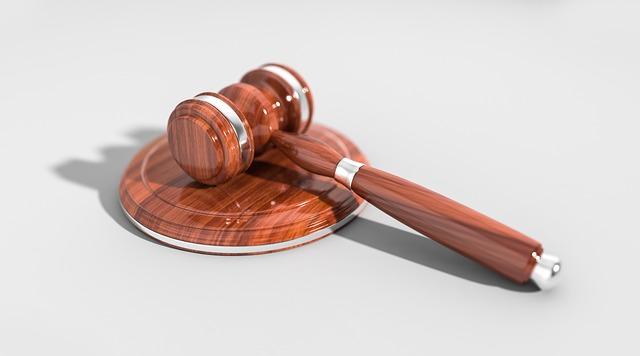Understanding Florida’s Medical Cannabis Laws: Everything You Need to Know

Florida’s medical cannabis laws have evolved significantly over the years, offering patients an alternative to traditional medication. This article breaks down the key aspects of medical marijuana regulations in Florida, from qualifying conditions to cannabis growing laws and its interaction with firearm ownership.
1. Qualifying Conditions for a Medical Card in Florida
To obtain a medical marijuana card in Florida, patients must meet certain criteria. The state approves cannabis treatment for several qualifying conditions, including:
Cancer
Epilepsy
Glaucoma
HIV/AIDS
Crohn’s disease
Parkinson’s disease
Chronic pain related to other conditions
PTSD (Post-Traumatic Stress Disorder)
The application process begins with a physician certified by the Florida Department of Health. The doctor will evaluate your condition and determine if medical cannabis is an appropriate treatment. Upon approval, patients can register for a medical marijuana card through the Florida Medical Marijuana Use Registry.
2. Medical Cannabis Laws in Florida
Florida’s medical marijuana laws are governed by Amendment 2, passed in 2016. The amendment legalized the use of medical cannabis for qualified patients and established a regulated market. Under these laws, only licensed Medical Marijuana Treatment Centers (MMTCs) can grow, process, and dispense cannabis to patients. Patients are allowed to purchase a limited amount of cannabis within a specified period.
It’s important to note that recreational cannabis remains illegal in Florida. Only those with a valid medical marijuana card can legally possess and use cannabis.
3. Florida Medical Marijuana Regulations
Florida has a strict regulatory framework to ensure the safe and effective distribution of medical marijuana. These regulations include:
Patients can only purchase medical marijuana from licensed dispensaries.
Only certified physicians can recommend cannabis.
Medical marijuana cannot be shared or sold to non-qualified individuals.
The state also monitors dispensary operations, ensuring that they comply with safety standards and provide accurate labeling, dosage information, and quality products.
4. Florida Law for Medical Cannabis and Concealed Carry
Florida law creates a complex intersection between medical cannabis use and firearm ownership. Under federal law, individuals who use medical marijuana are considered illegal drug users and are, therefore, prohibited from owning firearms. This creates a conflict for medical cannabis users in Florida who wish to carry a concealed firearm.
Even if Florida allows medical marijuana, federal laws may prevent you from legally purchasing or possessing firearms. It’s crucial for patients to be aware of this conflict and consult legal experts to understand how these laws affect their rights.
5. Florida Medical Cannabis Growing Laws
Currently, Florida does not allow patients to grow cannabis at home for personal medical use. Only licensed MMTCs are authorized to cultivate cannabis within the state. Home growing is considered illegal and could result in severe penalties. For those involved in the legal cultivation and distribution of cannabis, packaging plays a crucial role in maintaining product integrity. Weed baggies with designs for instance, are commonly used by dispensaries to not only store cannabis but also ensure compliance with state regulations regarding secure and proper labeling. These bags help preserve freshness and provide important information for consumers while adhering to legal guidelines.
6. Smoking Cannabis in Public: Florida’s Medical Marijuana Laws
Florida has strict laws about smoking medical marijuana in public. Although medical cannabis is legal for qualified patients, the use of cannabis in public spaces remains prohibited. This includes smoking near schools, parks, and other public areas. Violating these laws can result in fines or other penalties. Medical cannabis is intended for private use, and patients are advised to consume their medication discreetly in approved forms like edibles, oils, or vaporizers.
7. Consequences of Getting a Medical Card in Florida
Obtaining a medical marijuana card in Florida comes with both benefits and potential consequences:
Benefits: Patients gain legal access to cannabis products that can help manage pain, reduce inflammation, and improve quality of life.
Consequences: While the card offers legal protections, it may affect other areas of your life. For instance, cannabis users might face restrictions in firearm ownership due to federal regulations. Additionally, some employers may have policies that restrict or prohibit the use of medical cannabis, so it’s important to understand your rights in the workplace.
8. Florida Medical Marijuana Laws for Out-of-State Patients
Florida’s medical marijuana laws also consider out-of-state patients, allowing them to access cannabis while in the state. Non-residents who hold valid medical marijuana cards from other states can apply for temporary access to Florida’s medical cannabis. However, they must follow Florida’s specific guidelines, and their conditions must align with the state’s qualifying conditions. The process involves registering with a licensed MMTC in Florida.
Conclusion: Navigating Florida’s Medical Cannabis Landscape
Florida’s medical cannabis laws offer a pathway to alternative treatment for patients with qualifying conditions. However, these laws are complex, covering everything from qualifying conditions and dispensary regulations to firearm restrictions and public use policies. Understanding these laws is critical for patients, caregivers, and business owners involved in the medical marijuana industry.
Before pursuing medical cannabis in Florida, it’s advisable to consult with healthcare professionals and legal experts to ensure full compliance with both state and federal regulations.


Comments